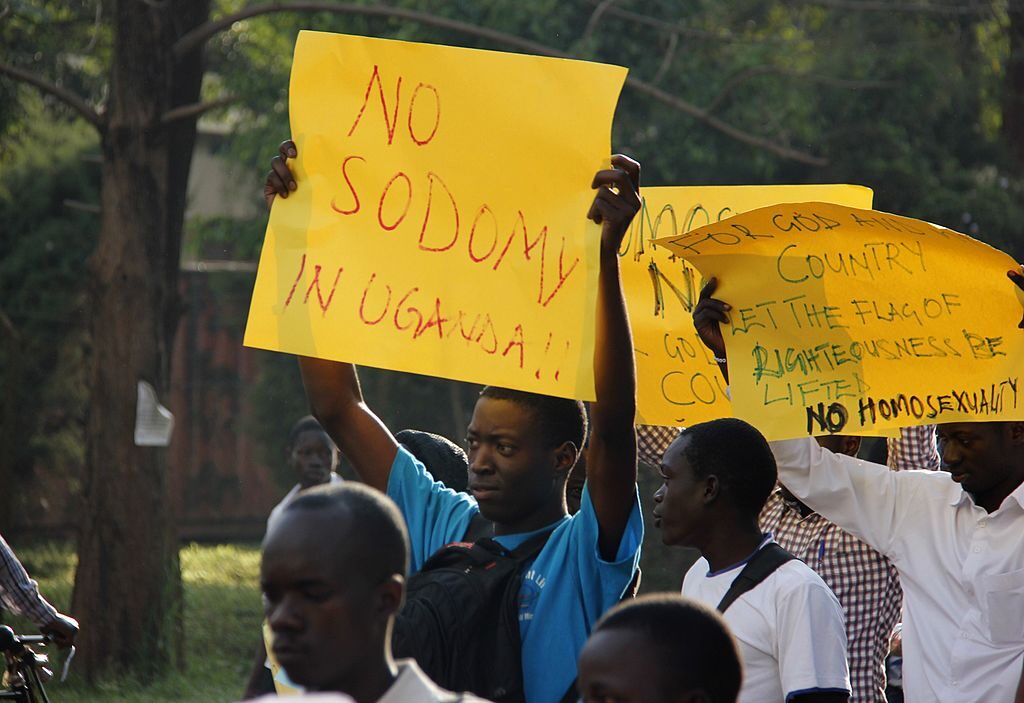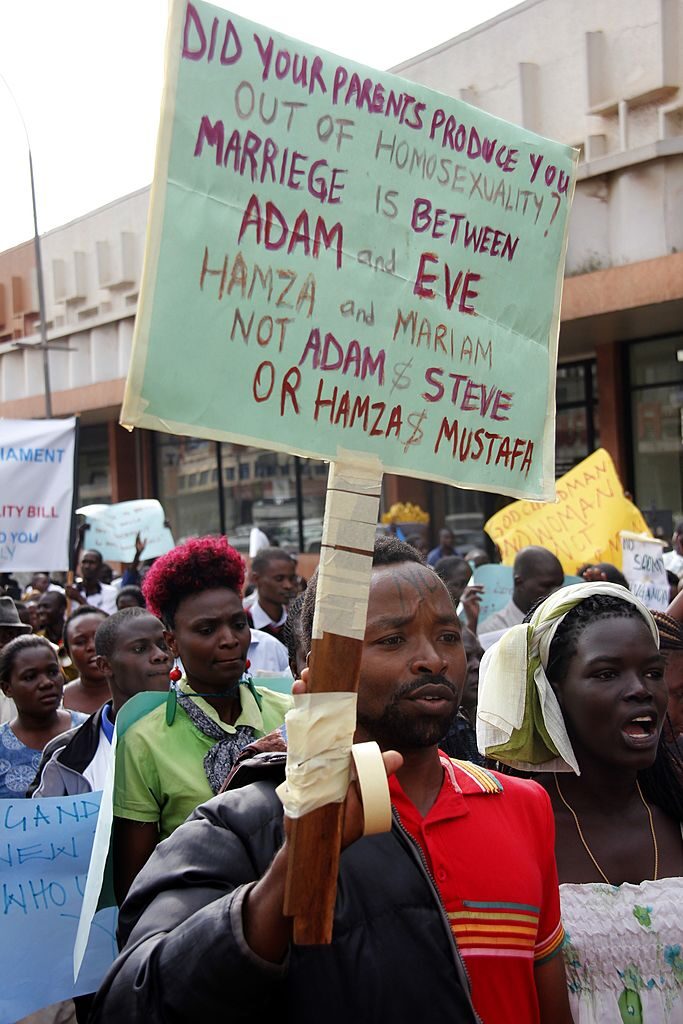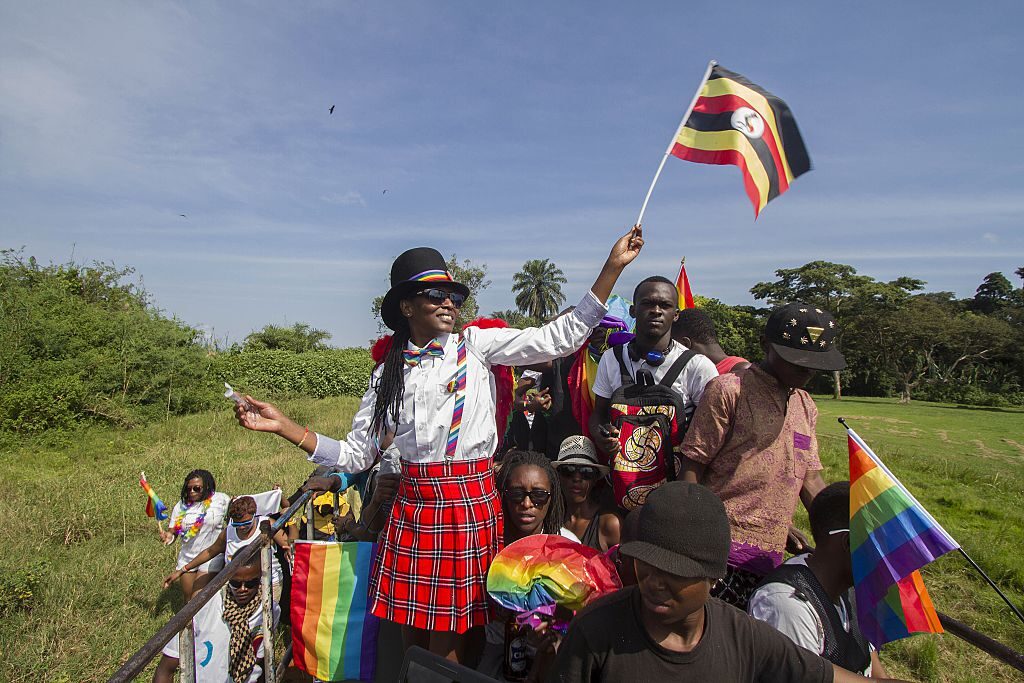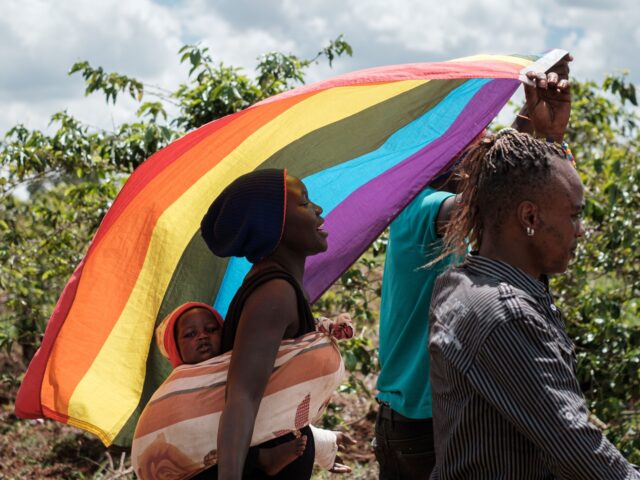Uganda is resisting international pro-gay propaganda by putting forward new legislation to protect its “cherished values and culture” according to Annet Anita Among, the speaker of the Ugandan parliament.
Among has pledged to the country “that a Bill will be introduced as soon as possible to deal with Homosexuality and lesbianism,” she wrote on Twitter. “We shall Jealously protect our cherished values and culture.”
“We do not appreciate the money they are bringing to destroy our culture,” said Among, a Catholic, on a video clip posted on her Twitter feed.
“We do not need their money, we need our culture,” she said, in reference to Western governments and aid agencies promoting a pro-homosexual agenda in Uganda.
The United States has played a central role in pushing a pro-gay agenda contrary to Ugandan values and in her video clip, Among challenged U.S. Ambassador in Uganda Natalie Brown by name.

File/Anti-Homosexual activists march on the streets of Kampala carrying placards on August 11, 2014 to demonstrate against the recently annulled Anti-Gay law by Ugandas constitutional court. (ISAAC KASAMANI/AFP via Getty Images)
Brown has publicly lamented that the LGBTQI+ community is among the populations frequently “stigmatized” across all levels of society in Uganda.
In July 2022, Brown gave an address to the LGBT advocacy group Universal Coalition of Affirming Africans Uganda, in which she spoke of “the benefits of diversity” as well as “the importance of inclusion of LGBTQI+ people in all that we do,” holding up American Pride Month as an example of positive reinforcement.
Consistent with guidance from the Biden Administration, “I flew the Rainbow Flag just under the U.S. flag at my residence and at all of the Embassy’s facilities,” Brown said. “I did this to underline our support for a community that has long been marginalized both in public and private life, deprived of its human rights, and subjected to abuse – emotional, physical, sexual, economic, and psychological.”
“Despite our best efforts to advocate for equal treatment of sexual minorities, and some notable progress in this effort, there is still much room for improvement,” she said.

File/Anti-Homosexual activists march on the streets of Kampala carrying placards on August 11, 2014 to demonstrate against the recently annulled Anti-Gay law by Ugandas constitutional court. ( ISAAC KASAMANI/AFP via Getty Images)
Each of us, “irrespective of who we love, has the right to determine our destiny and to live healthy and fulfilling lives,” she said.
“Unfortunately, when it comes to LGBTQI+ persons and their rights, our institutions can be intolerant, or even fearful, which can lead to the perpetuation and condoning of violence and hateful acts,” she said.
Many African political and religious leaders reacted strongly to efforts by the Obama administration to promote a pro-homosexual agenda in African nations. According to the New York Times, the Obama government invested more than $700 million into supporting the gay agenda globally, with more than half that money targeting sub-Saharan Africa.
Following Obama’s trip to Africa in 2015, a number of African bishops as well as other leaders accused the president of western “cultural imperialism,” and requested that the president learn to respect Africa’s values rather than imposing his own.

File/People waving Ugandan and rainbow flags take part in the Gay Pride parade in Entebbe on August 8, 2015. (ISAAC KASAMANI/AFP via Getty)
“In the same way that we don’t try to impose our culture on anyone, we also expect that people should respect our culture in return,” said Theresa Okafor, a Nigerian activist.
While gay rights activists complain that a new law would mean “more harassment and discrimination,” in point of fact there has never been a conviction in Uganda for consensual sodomy since the country’s independence from Britain in 1962.

COMMENTS
Please let us know if you're having issues with commenting.